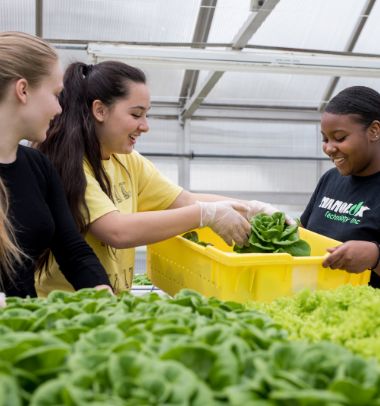This article originally appeared on The Charlotte Agenda
A Charlotte nonprofit has figured out a way to educate students using hands-on, real-world applications and to connect young people in Charlotte with the youth of developing countries, all while providing food for the hungry of our community. It might sound like a utopian pipe dream, but it’s real and it’s called 100 Gardens.
“100 gardens is a strategy to increase student engagement in schools while addressing health and nutrition,” says co-director Sam Fleming. “It’s also a strategy to spread aquaponic technology in places like Haiti.”

100 gardens currently has aquaponic gardens in eight schools, six here in Mecklenburg County and two in Haiti, with a mission to eventually build 100 aquaponic gardens.
(100 gardens is the brainchild of Charlotte architect Ron Morgan; it began as a way to create sustainable opportunities for the people of Haiti following the 2010 earthquake, but that is its own amazing story.)
“We’re trying to build a cohesive network of aquaponic gardens that create a larger conversation about science, food and environmental issues,” says Sam.
The other day I had the chance to meet with Sam at the aquaponic garden at Garinger High School. Located in a revitalized greenhouse on the Garinger campus the aquaponic garden is a thing of beauty. Consisting of four large water tanks filled with hundreds of tilapia and several dozen rows of growing plants, the aquaponic system provides an incredible opportunity for students to see for themselves how interconnected these eco-systems are.

The process begins as the tilapia are fed nutrition dense pellets, which are the only invasive aspect of the garden. From there, the water is cycled through and pumped to the rows of growing lettuce, kale and other leafy greens, whose roots actively extract nutrients from the water.
The purified water is then pumped back into the fish tanks, allowing the fish to have clean water to swim in and the plants to have the nutrients they need to grow without leaving the type of detrimental ecological footprint typically associated with fish farming.



“Farming fish can be really harmful to the environment because all of the waste products end up in rivers and streams,” Sam says. But in the aquaponic garden, “as the water passes through these rows of plants it’s just getting cleaner and cleaner.”
Aquaponics, as a farming method in and of itself has plenty of environmental benefits; from using a fraction of the water traditional farming consumes, to producing higher volumes of leafy green vegetables, to creating a space for growing food in urban settings.
100 Gardens takes the inherent benefits of aquaponics gardening and builds on them by using this relatively contained gardening technique to teach students a range of subjects using real world skills from biology, math, chemistry and the culinary arts.
And the teaching is just the beginning. The students use the produce from the aquaponics gardens to make meals for Friendship Trays, providing food for the hungry here in Charlotte.

“You haven’t tried tilapia until you’ve tasted these fish,” says Sam. “They are everything that frozen tilapia are not — they’re tender, flaky and full of flavor.”
This unique program allows students to learn true farm-to-table cooking techniques using the fish and plants that they have grown themselves. And then they apply their cooking skills to give back to those in need right here in the Charlotte community, creating a symbiotic relationship between two great organizations, Friendship Trays and 100 Gardens.
“All of the produce that gets grown here ends up in Friendship Trays, and then in exchange Friendship Trays pays for the input costs such as fish feed, pH buffers and seeds,” says Sam.


Throughout each aquaponic garden, there are sensors monitoring crucial metrics of the garden, from the temperature of the water, to the pH, to other critical parameters.
All of this data is harvested by computers in each garden and then uploaded to a cloud based server where students can access and compare results from their sister schools, enabling them to learn from each other and discover the best practices to optimize their systems.
If you are interested in learning more about aquaponics, 100 gardens is always looking for volunteers, and they run three aquaponic workshops every year. For all of the information on the workshops and on how to get more involved with this amazing program, check out their website.











